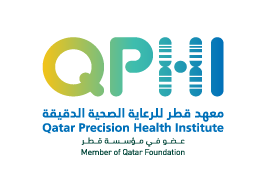
PPM 04-0312-200037
| Project Information |
|---|
Proposal Number : PPM 04-0312-200037 Program Cycle : PPM 04 Submitting Institution Name : Hamad Bin Khalifa University Project Status : Award Active Start Date : 1/1/2021 Lead Investigator : Dr. Borbala Mifsud Project Duration : 4 Year(s) End Date : 1/1/2025 Submission Type : New Proposal Title : Pharmacogenomics of TNF inhibitors in autoimmune diseases |
| Project Summary | |||||||||||||||
|---|---|---|---|---|---|---|---|---|---|---|---|---|---|---|---|
Proposal Description: Autoimmune diseases are on the rise globally, and the largest increase is observed in highly developed countries. They contribute significantly to morbidity and mortality, posing a substantial burden on health care systems worldwide. Tumor necrosis factor-alpha (TNF) is a central pro-inflammatory cytokine whose upregulation plays an important role in the pathogenesis of many autoimmune diseases. TNF inhibitors (TNFi) are therefore widely used for a range of autoimmune conditions such as rheumatoid arthritis and Crohn's disease. However, response to treatment is variable among patients and up to 40% of patients do not improve with TNF inhibitor therapy. Drug response generally exhibits high heritability; therefore, it is likely that this variability is largely determined by genetic variants affecting the drugs’ mechanism of action. There are very few pharmacogenomics genome-wide association studies that could delineate clear links between genetic variants and treatment outcome, and these studies are especially lacking in Arab populations. In collaboration with Hamad Medical Corporation and Sidra Medicine, we aim to address this gap. We will establish a genetic correlation with response to treatment by recruiting patients with inflammatory arthritis and inflammatory bowel diseases across the two hospitals and performing exome-wide association studies for the efficacy of TNF inhibitors. Furthermore, we will assess the prevalence of both newly identified response-associated variants and those found in TNFi-response candidate genes in genomes sequenced by the Qatar Genome Programme, to understand the extent of their impact in the local population. Additionally, since autoimmune diseases are thought to be greatly influenced by the environment, we hypothesize that some of the variability is mediated by epigenetic factors, and we will perform an epigenome-wide association study to investigate the effect of differential DNA methylation on TNF inhibitor-response. We will also characterize the epigenetic mechanisms involved in the regulation of response-associated genes. Finally, we will validate the effect of variants on the functioning of the TNF signaling cascade in humanized C. elegans. We will analyze protein phosphorylation levels in the strains expressing the identified variants and test the efficacy of their innate immune response to bacterial infection. Research Area Keywords: Pharmacogenomics; Epigenetic; TNF inhibitors; Rheumatoid Arthritis; Chron's disease Research Area Keywords by PM: Pharmacogenetics/Pharmacogenomics; Precision Research Type Translational Research / Experimental Development
|
| Project Summary | ||||||||||||
|---|---|---|---|---|---|---|---|---|---|---|---|---|
|
| Personnel | ||||||||||||||||||||||||||||||||||||||||||
|---|---|---|---|---|---|---|---|---|---|---|---|---|---|---|---|---|---|---|---|---|---|---|---|---|---|---|---|---|---|---|---|---|---|---|---|---|---|---|---|---|---|---|
|

